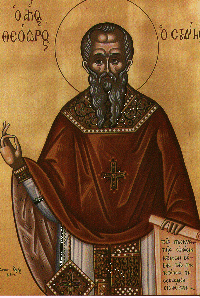 If…it frequently happens that the soul grows slack and is defiled by unseemly thoughts – for who will boast that they have a pure heart? – let it be quickly made clean again and brought back to its former condition, lest by delaying in evil it gives birth to death.
If…it frequently happens that the soul grows slack and is defiled by unseemly thoughts – for who will boast that they have a pure heart? – let it be quickly made clean again and brought back to its former condition, lest by delaying in evil it gives birth to death.
And let no one ever say that they cannot be made clean again, stained as they are by many sins, when they listen to the One who said, “Though your sins are like scarlet, I will make them white as snow. Though they are like crimson, I will make them white as wool” (Isaias 1:18).
Do you see God’s ineffable love for humankind? Not only has he promised to purify, but to bring the one who repents to the pinnacle of loveliness.
And examples are manifest. David was a prophet and, when he fell into the crime of adultery and murder, he did not give up, but after he had swiftly had recourse to repentance, he received the grace of prophecy once again.
[…] The prince of the Apostles, after his denial, by the medicine of tears took up again the burden of the apostolate. Mary of Egypt, to pass over the numberless others, had reached the uttermost limit of debauchery, but once she had come to a remarkable repentance, she attained the highest degree of virtue.
[…] We hear the words, “Why would you die, house of Israel?” (Ezekiel 18:31), and why do we choose everlasting death rather than immortal life that is set before us? Our good Master cries out each day, “Come to me all you that toil and are heavy laden, and I will give you rest” (Matthew 11:28). And we are unwilling to get rid of the heavy load of our sins.
The same Master cries, “I am the light of the world. One who follows me will not walk in darkness, but will have the light of life” (John 8:12). But we turn to the opposite, proclaiming by our actions, “We do not want to know your ways” (Job 2:14).
All that remains is for us to hear, “Walk by the light of your fire and the flame you have kindled” (Isaias 50:11). And Scripture says, “Those who do such things will not inherit the kingdom of God” (Galatians 5:21).
But God forbid that such things should be said of us. “For you are may friends, says the Lord, if you do all that I command you” (John 15:14). So then, let us do all that we have been commanded, that we may be worthy to be called friends, to inherit the kingdom of heaven, in Christ our Lord.
Theodore the Studite: (759-826): Catechesis 20 trans. Archimandrite Ephrem Lash @ Anastasis.








